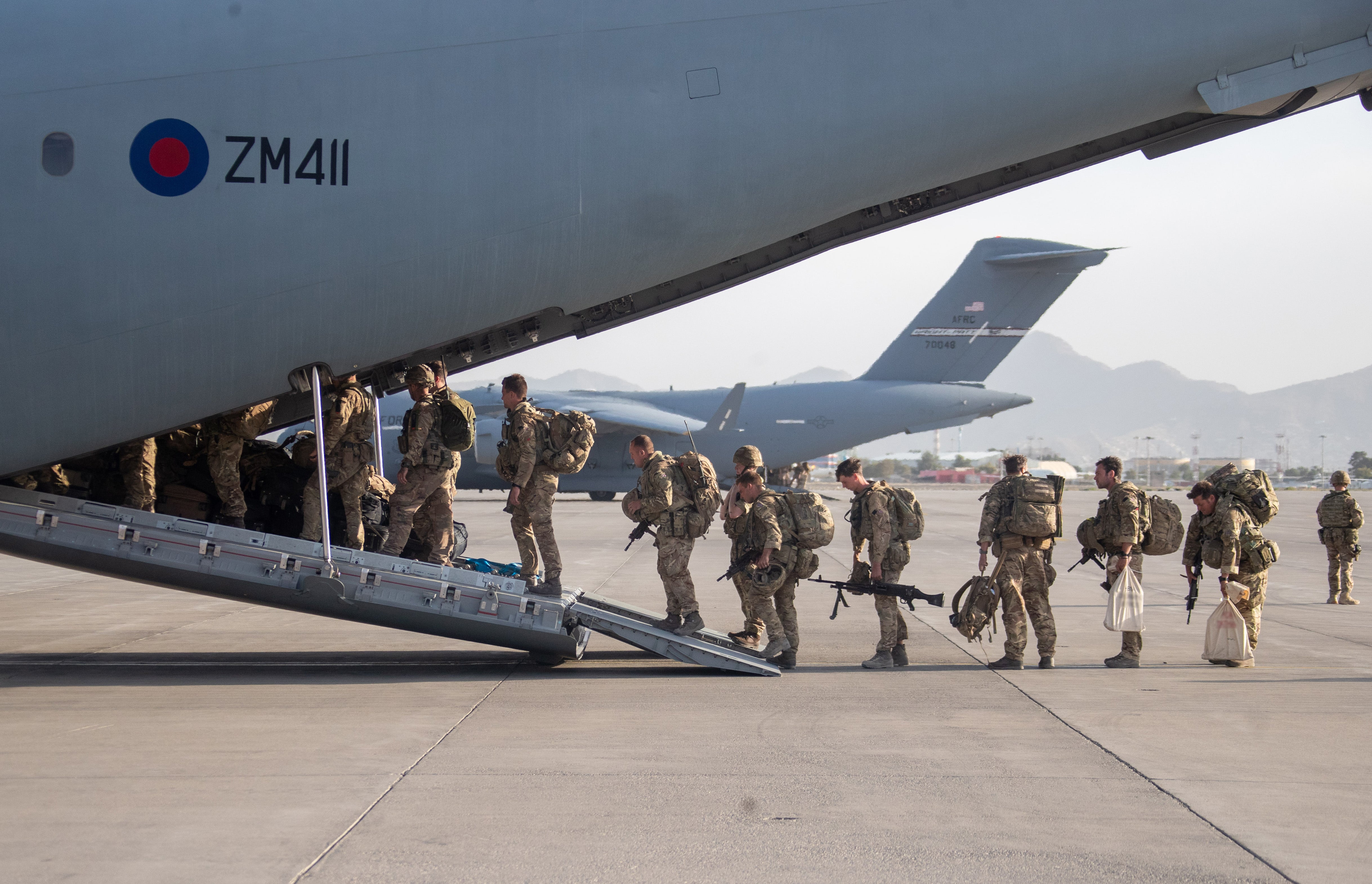Hundreds of Afghan special forces soldiers betrayed by Britain had their details leaked in a major data breach before being left in the dark about the potential threat to their lives from the Taliban, The Independent can reveal.
The leak in February 2022 involved the names and contact information of 18,700 Afghans being shared “in error” by a Ministry of Defence (MoD) official, and prompted a top-secret operation to scramble thousands to safety in Britain.
Among the names were those of members of two specialist units, known as the Triples, whose soldiers have faced death or torture by the Taliban because of their role training and fighting side by side with British forces, as revealed by this publication.
The Independent spearheaded a campaign urging the government to grant members of the Triples sanctuary in Britain after many were left stranded and in danger, following the fall of Kabul to the Taliban in August 2021.
Now it has emerged that around half of the commandos initially identified for relocation to the UK were affected by the breach, which became the subject of a draconian superinjunction amid fears the dataset could fall into the hands of the Taliban.
The Triples members only knew about the blunder as the legal order was lifted on Tuesday after an extraordinary two-year legal battle over the gagging of the British press.
Hundreds of Triples soldiers, along with their families, have been brought to the UK, but there are fears many have been left behind in Afghanistan, where their lives are still at risk.
Major General Charlie Herbert, who served alongside the Triples in Afghanistan, has urged the government to spell out how many have made it to the UK and how many are still in limbo.
He described the data leak episode as a “dereliction of duty” by the government, and questioned whether a superinjunction should ever have been put in place.
.png)
“I can’t believe the data breach happened. I’m really worried that nobody was made aware of this. There would have been people in Afghanistan on that list, not aware that that list had been shared and could have been in the hands of the Taliban,” he said.
“What was the purpose of that injunction, because the information had leaked? It was already on social media in Afghanistan, so the only impact it had was on the media’s ability to report it,” he added.
Ex-Tory veterans minister Johnny Mercer said: “The whole thing is appalling, it’s time to stop the deceit and do the right thing by these poor folk.
“The MoD need to extract the remaining Triples. There are enough subject matter experts out there to help them identify them, and then consider where we go from there.”
It emerged in court documents submitted in early 2024, as part of the superinjunction case, that around half of those Triples commandos who would be brought to the UK had had their data leaked by the government.
In a witness statement, the head of Afghan resettlement, Natalie Moore, said the MoD would “retake 2,000 eligibility decisions for applicants claiming a connection to UK special forces, which include applications from former members of the Triples, of which around 50 per cent are affected people”.
As of this month, 300 Afghans with links to specialist units have been brought to the UK or are on the way, and 1,800 are still to come.

Daniel Carey, a partner at legal firm DPG, which has represented Triples, questioned why those at risk were not notified earlier.
He said: “We already know from many Arap [Afghan Relocations and Assistance Policy] cases that government assessments of Taliban risk are unreliable. My clients have been detained and tortured despite government assessments that the risk to them was low.
“Afghans in the UK are worried about the impact on their families and pending family member applications.”
The units were set up, paid and trained by the British, but soldiers from the two units had been denied relocation through the Arap. The scheme promised to relocate Afghans directly employed by, or who worked closely alongside, British forces and who are at risk of reprisals.
The Independent raised the plight of the Triples in November 2023, three months after officials first became aware of the leak. Following our investigation, the MoD admitted its decision-making was “not robust” and announced a review of around 2,000 applications to Arap.
The High Court later heard that one UK special forces officer oversaw the blanket rejection of 1,585 cases during the summer of 2023.
Mr Carey said it was “incredible” that, a year after the data breach, another military official had overseen a sweeping refusal of applications.

Last week, the High Court found that defective decision-making resulted in hundreds of Afghan special forces who served with the British being wrongly rejected for sanctuary and abandoned to the Taliban.
Mr Carey said: “Our clients have experienced years of delays at risk of Taliban reprisal waiting for lawful decisions.
“The government’s refusal to notify those affected of the decisions in their cases (now reversed) led to further delays. Now we know that the whole time they have also been put at risk due to the massive data leak.
“Many Triples are still in Afghanistan, nearly four years after applying, and are seemingly now at greater risk than ever. I hope that the decisions will now follow swiftly.”
On top of the 2,000 initial applications reviewed, up to 2,500 extra cases have been identified for re-examination after the MoD realised the significance of rediscovered payroll data.
An MoD spokesperson said “the Triples review absolutely remains a priority”.


